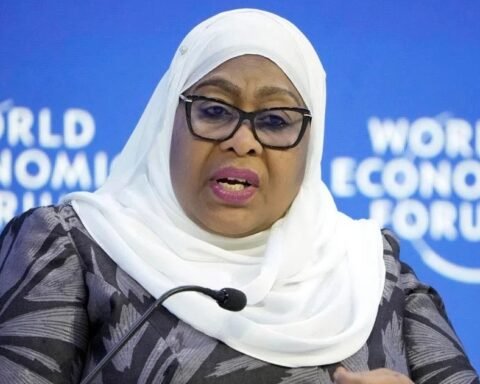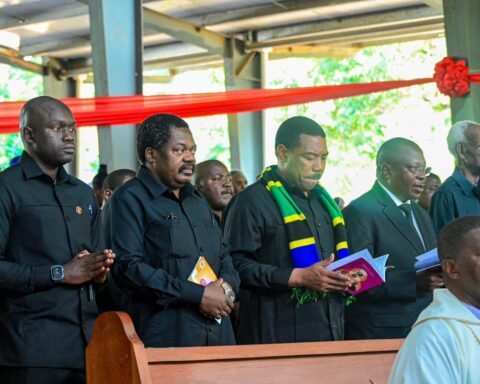The opposition party ACT Wazalendo launched its 2025 election manifesto in a spirited ceremony at the party’s headquarters in Magomeni, Dar es Salaam.
The event, led by Party Leader Doroth Semu, drew parliamentary candidates, local councillors, and senior figures including outspoken legislator Zitto Kabwe of Kigoma Urban.
Unveiled under the theme “Taifa la Wote, Maslahi ya Wote” (“A Nation for All, in the Interest of All”), the manifesto outlines the party’s blueprint for building what it describes as an inclusive and people-centered future. Semu stressed that the program is designed to shift the focus from an economy based on “statistics and elite gains” to one that directly improves the daily lives of ordinary Tanzanians.
The manifesto sets out a wide-ranging agenda, pledging to create 12 million jobs through industrial revival, protection of small-scale businesses, and expansion of affordable housing. It promises the construction of 500,000 homes for civil servants, the elderly, and vulnerable groups. On education, it commits to free schooling from nursery through university, abolition of parental contributions, and government coverage of all school-related costs.
Healthcare, too, is a central pillar. The party pledges to fund the sector entirely through the national budget rather than donor dependence, expand rural health services, and ensure equitable access. It also promises a five-year investment of 10 trillion shillings to end water shortages and a 50 percent cut in household electricity costs, with poor families receiving free connections.
Also Read; Trump Calls for Revoking Licenses of Critical TV Networks
The party has also revived the debate over governance and democracy. Within a year of taking office, ACT Wazalendo says it will relaunch the constitutional review process, establish an independent electoral commission, and reform the police service into an institution that “protects rather than coerces.” On foreign policy, the manifesto pledges to restore Tanzania’s global standing through diplomacy that emphasizes equality, justice, and mutual respect.
Natural resource management and land ownership form another cornerstone. The party promises to reclaim land taken through unfair privatization, make all extractive contracts public, and fast-track stalled megaprojects such as Mchuchuma, Liganga, and Kabanga Nickel. At the same time, it seeks to diversify tourism into cultural and community-based models, while investing in infrastructure like roads, railways, ports, and digital services.
On environmental protection, ACT Wazalendo commits to bold measures against climate change, promising stricter regulation of carbon trading, investments in clean energy, and stronger disaster preparedness systems.
Concluding her address, Semu declared: “This is the moment of transformation. With our vision, Tanzania will be built on dignity, equality, justice, and prosperity for all.”
Political analysts argue that while the manifesto is ambitious, it reflects growing public demand for systemic change. With rising youth unemployment, widening income inequality, and frustrations over governance, ACT Wazalendo’s pledges could resonate strongly in urban centers and among young voters preparing for the 2025 general election.







